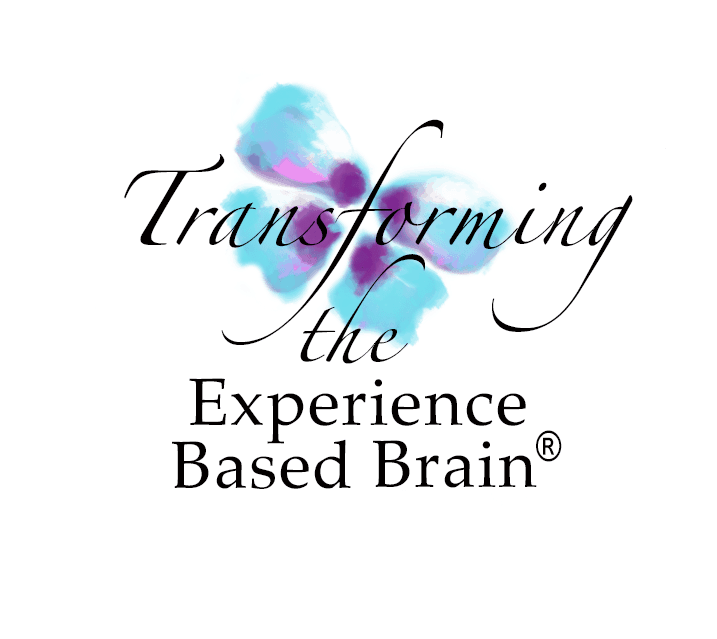
Transforming Touch® is a Regulation Focused Modality
Transforming Touch® is an Regulation Focused Modality, attachment-focused, neurophysiological treatment utilizing Transforming Touch® to create somatic trust.
Trauma Informed Care is about understanding the impact of developmental trauma. Understanding that early/developmental trauma upsets the entire development of the person and limits the person's ability to use imagination and perception. Their lives become focused on survival where the need to learn and develop socially, emotionally, spiritually, and cognitively become overridden by the need to survive.
This is a relationship approach, knowing that through relationship, healing can and will happen. Trauma Informed Care is what happens at home as well as what happens in education and community.
Dyadic Developmental Psychotherapy is an evidence-based treatment approach, found by two studies to be effective for the treatment of attachment disorder, reactive attachment disorder, reactive attachment disorder, and complex trauma.
Children who have experienced pervasive and extensive trauma, neglect, loss, and/or other dysregulating experiences can benefit from this treatment. Dyadic Developmental Psychotherapy is based on principles derived from Attachment theory and research, grounded in the work of Bowlby.
The treatment meets the standards of the American Professional Society on the Abuse of Children, The American Academy of Child Psychiatry, American Psychological Association, American Psychiatric Association, National Association of Social Workers, and various other groups' standards for the evaluation and treatment of children and adolescents.
This is a non-coercive treatment. The principles and methodology of Dyadic Developmental Psychotherapy are based on long-standing treatment principles with very strong empirical evidence and a long history of proven efficacy.
Eye Movement Desensitization and Reprocessing (EMDR) has been used on children to treat a variety of conditions. It has been used in the treatment of children who have experienced trauma and complex trauma. It is often cited as a component in the treatment of Complex Post Traumatic Stress Disorder (Briere & Scott, 2006), emotional dysregulation, and in the treatment of children exposed to chronic early maltreatment that is related to Attachment disorder. It is recognized by the UK National Institute for Health & Clinical Excellence (NICE) Guidelines as a treatment for PTSD.
Play Therapy is an expressive therapy that uses play to diagnose and treat psychological problems, especially in children.
Play therapy is often used as a tool of diagnosis. A play therapist observes a client play with toys (play-houses, pets, dolls, etc.) to determine the cause of disturbed behavior. The objects and patterns of play, as well as the willingness to interact with the therapist, can be used to understand the underlying reasons for behavior both inside and outside the session. According to the Psychodynamic approach, children will engage in play behavior in order to work through their anxieties. In this way, play therapy can be used as a self-help mechanism, as long as children are allowed time for 'free play'. From a developmental point of view, children who are pre-occupied with playing in order to reduce their anxieties will spend less time developing their cognitive abilities through play and may suffer from developmental retardation.
As a treatment, play therapists use a type of systematic desensitization or relearning therapy to change the disturbing behavior, either systematically or in less formal social settings. These processes are normally used with children, but are also applied with other pre-verbal, non-verbal, or verbally-impaired persons, such as slow-learners, brain-injured or drug-affected persons. Mature adults usually need much "group permission" before indulging in the relaxed spontaneity of play therapy, so a very skilled group worker is needed to deal with such guarded individuals.
SOMATIC EXPERIENCING® (SE) is a short-term approach to the resolution and healing from trauma developed by Peter Levine, PhD. It is based on the observation that prey animals, while routinely threatened, are rarely traumatized because they utilize innate mechanisms to regulate and discharge the high levels of arousal associated with defensive survival behaviors.
Although humans are born with virtually the same regulatory mechanisms, the functionality of them is often overridden or inhibited by the rational parts of our brain, fear, immobility and social isolation or perceived isolation.
SE employs the awareness of body sensation to help people 'renegotiate' their trauma experiences rather than relive them. With appropriate guidance in to the 'felt sense', clients can access their own defensive mechanisms to safely and gradually discharge the built up and frozen energy of the shock or trauma state.
Theraplay is a therapeutic approach that utilizes elements of play therapy and that has the intention of helping parents and children build better attachment relationships through attachment-based play.
Please Submit for Individual Therapy
Fill out the form below or call us at (512) 206-0260 to request an appointment
Please note that Stephen Terrell no longer accepts Texas Medicaid or any other form of insurance for services. There are, however, two other therapists in the office who accept Texas Medicaid and other insurances.
